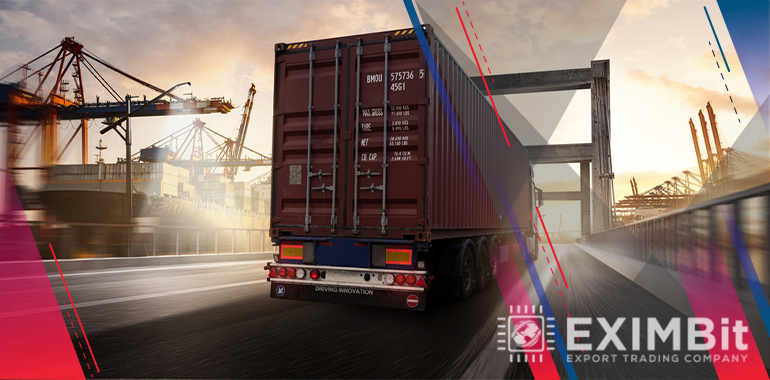How a Freight Dispatcher Can Help Your Business Stay Ahead in the Logistics Game
In the fast-paced world of logistics, staying ahead of the game is crucial for businesses. One effective way to achieve this is by enlisting the expertise of a freight dispatcher. A freight dispatcher acts as the bridge between shippers and carriers, coordinating and managing the transportation process to ensure seamless operations. By outsourcing these responsibilities to an experienced dispatcher, businesses can focus on their core operations while reaping the benefits of efficient logistics management.
A skilled freight dispatcher possesses a deep understanding of the industry, enabling them to match the right carrier to the specific transportation needs of the business. They have access to a vast network of carriers, which means they can negotiate competitive rates and secure the best possible transport options for their clients. With their finger on the pulse of the logistics world, freight dispatchers can also provide valuable insights and strategies to optimize transportation routes and reduce costs.
Overall, partnering with a freight dispatcher can give your business a competitive edge by streamlining processes, improving efficiency, and reducing overall logistics expenses. In this article, we will delve into the numerous ways a freight dispatcher can help your business stay ahead in the logistics game. So, read on to discover the advantages of this invaluable partnership.

The role of a freight dispatcher in the logistics industry
A freight dispatcher plays a vital role in the logistics industry by managing the complex process of transporting goods from one location to another. They are responsible for coordinating shipments, negotiating rates, and ensuring timely delivery. With their extensive knowledge of the industry, freight dispatchers can navigate through challenges and find the most cost-effective and efficient solutions for their clients.
Freight dispatchers act as the middlemen between shippers and carriers, connecting businesses with the right transportation providers. They have access to a vast network of carriers, allowing them to find the best match for each specific shipment. This not only saves time and effort for businesses but also ensures that the transportation process is handled by experienced professionals.
Additionally, freight dispatchers stay updated with the latest industry trends, regulations, and technologies. This knowledge enables them to provide valuable insights to their clients and suggest strategies to optimize transportation routes and reduce costs. By leveraging their expertise, businesses can stay ahead in the logistics game and make informed decisions that positively impact their bottom line.
Benefits of hiring a freight dispatcher
Partnering with a freight dispatcher offers numerous benefits for businesses in the logistics industry. One of the key advantages is the ability to tap into their extensive network of carriers. Freight dispatchers have established relationships with various carriers, allowing them to negotiate competitive rates and secure the best possible transport options for their clients. This not only saves businesses money but also ensures that their shipments are handled by reliable carriers.
Furthermore, hiring a freight dispatcher allows businesses to focus on their core operations. The logistics process can be complex and time-consuming, requiring significant resources to manage effectively. By outsourcing these responsibilities to a freight dispatcher, businesses can free up valuable time and resources, allowing them to concentrate on their primary objectives. This enhanced focus on core operations leads to improved productivity and overall business performance.
Another benefit of working with a freight dispatcher is their ability to provide real-time tracking and communication. Advanced technologies and communication tools enable freight dispatchers to track shipments and provide timely updates to their clients. This level of transparency and communication not only gives businesses peace of mind but also allows them to make informed decisions based on accurate information.
Key responsibilities of a freight dispatcher
Freight dispatchers handle a wide range of responsibilities to ensure the smooth transportation of goods. Their primary role is to match the transportation needs of businesses with the right carriers. This involves understanding the specific requirements of each shipment, such as size, weight, and delivery timeline, and finding carriers who can meet these criteria.
Additionally, freight dispatchers are responsible for negotiating rates and contracts with carriers. They leverage their industry knowledge and network to secure the best possible prices for their clients. This not only helps businesses save money but also ensures that they are working with carriers who offer reliable services.
Furthermore, freight dispatchers coordinate the logistics process from start to finish. They handle documentation, customs clearance, and other necessary paperwork to ensure compliance with regulations. They also monitor the progress of shipments, resolve any issues that may arise, and provide regular updates to their clients. Overall, the key responsibilities of a freight dispatcher revolve around ensuring the efficient and timely transportation of goods while optimizing costs and providing excellent customer service.

How a freight dispatcher improves efficiency in the logistics process
Efficiency is crucial in the logistics industry, as it directly impacts the overall performance and profitability of businesses. Freight dispatchers play a significant role in improving efficiency by streamlining the logistics process. Firstly, freight dispatchers have access to advanced technology tools and software that automate various aspects of the logistics process. These tools enable them to track shipments, manage documentation, and communicate with carriers and clients in real time.
By leveraging technology, freight dispatchers can eliminate manual processes, reduce errors, and improve overall efficiency.
Secondly, freight dispatchers have a deep understanding of transportation routes and regulations. They can analyze different routes and select the most efficient options based on factors such as distance, traffic, and carrier availability. This optimization of routes not only saves time but also reduces fuel consumption and transportation costs.
Furthermore, freight dispatchers have the expertise to consolidate shipments, maximizing the use of available space in carriers. By combining multiple shipments, businesses can benefit from economies of scale and reduce overall transportation costs. This consolidation also reduces the number of carriers involved, simplifying the logistics process and minimizing the risk of errors or delays.
Overall, a freight dispatcher’s ability to improve efficiency in the logistics process is a significant advantage for businesses. By optimizing routes, utilizing technology, and consolidating shipments, businesses can achieve faster delivery times, lower costs, and enhanced customer satisfaction.
The importance of real-time tracking and communication in freight dispatching
Real-time tracking and communication are essential components of effective freight dispatching. In today’s fast-paced world, businesses require accurate and up-to-date information about their shipments to make informed decisions and meet customer expectations.
Freight dispatchers utilize advanced tracking technologies to monitor the progress of shipments in real time. These technologies provide detailed information about the location, status, and estimated delivery time of each shipment. This level of visibility allows businesses to plan and allocate resources accordingly, ensuring smooth operations and timely delivery.
Additionally, real-time communication between freight dispatchers, carriers, and clients is crucial for resolving any issues or delays that may arise during the transportation process. By maintaining constant communication, freight dispatchers can proactively address any challenges, such as traffic congestion, weather conditions, or unexpected events. This proactive approach minimizes the impact of disruptions and ensures that businesses can take appropriate actions to mitigate risks and meet their delivery commitments.
Furthermore, real-time tracking and communication enhance customer satisfaction. Businesses can provide accurate information to their customers, such as estimated arrival times and delivery updates, improving transparency and trust. This level of customer service sets businesses apart from their competitors and helps build long-term relationships with clients. In conclusion, real-time tracking and communication are vital in freight dispatching as they enable businesses to make informed decisions, proactively address challenges, and provide excellent customer service.
Effective strategies for managing and coordinating shipments
Managing and coordinating shipments requires careful planning and execution to ensure seamless operations. Freight dispatchers employ various strategies to optimize the logistics process and improve efficiency. One effective strategy is to implement a centralized system for managing shipments. This system allows freight dispatchers to track and monitor all shipments from a single platform, providing a comprehensive view of the logistics operations. It streamlines communication, eliminates the risk of miscommunication or lost information, and enables efficient decision-making.
Another strategy is to leverage data analytics to identify trends and patterns in the logistics process. By analyzing historical data, freight dispatchers can identify areas for improvement, such as bottlenecks, delays, or cost inefficiencies. This data-driven approach enables businesses to make data-informed decisions, optimize routes, and reduce overall transportation costs.
Additionally, effective collaboration with carriers is crucial for managing and coordinating shipments. Freight dispatchers establish strong relationships with carriers, fostering open communication and trust. This collaboration allows for better coordination, timely updates, and swift resolutions of any issues that may arise during the transportation process.
Furthermore, proactive planning and risk management are essential strategies for managing and coordinating shipments. Freight dispatchers anticipate potential challenges, such as weather conditions, traffic congestion, or customs delays, and develop contingency plans to mitigate risks.
This proactive approach minimizes disruptions and ensures that businesses can meet their delivery commitments, even in unforeseen circumstances. Overall, effective strategies for managing and coordinating shipments involve implementing centralized systems, leveraging data analytics, collaborating with carriers, and adopting proactive planning and risk management approaches.
Technology tools and software used by freight dispatchers
Technology plays a crucial role in the day-to-day operations of freight dispatchers. Advanced tools and software enable them to streamline processes, improve efficiency, and provide excellent customer service.
One of the key technologies used by freight dispatchers is transportation management software (TMS). TMS allows freight dispatchers to manage and track shipments, automate documentation, and communicate with carriers and clients in real-time. This software provides a centralized platform for managing all logistics operations, enabling seamless coordination and efficient decision-making.
Additionally, freight dispatchers utilize GPS tracking systems to monitor the location and status of shipments. These tracking systems provide real-time information about the whereabouts of each shipment, allowing for accurate tracking and timely updates to clients. GPS tracking systems also enable freight dispatchers to optimize routes, minimize delays, and provide proactive notifications in case of any disruptions.
Furthermore, electronic data interchange (EDI) is widely used by freight dispatchers for exchanging information with carriers and clients. EDI allows for the electronic transfer of data, such as shipping orders, invoices, and delivery confirmations, eliminating the need for manual paperwork and reducing errors. This technology streamlines communication, improves accuracy, and speeds up the logistics process.
Moreover, cloud-based platforms are increasingly utilized by freight dispatchers to store and access data securely. Cloud storage enables remote access to information, facilitating collaboration with carriers, clients, and team members. It also provides a scalable and flexible infrastructure, allowing freight dispatchers to adapt to changing business needs and handle large volumes of data. Overall, technology tools and software, such as TMS, GPS tracking systems, EDI, and cloud-based platforms, empower freight dispatchers to streamline processes, enhance efficiency, and provide superior service to their clients.

Qualities to look for when hiring a freight dispatcher
When hiring a freight dispatcher, it is essential to consider specific qualities that contribute to their effectiveness and success in the role. By identifying these qualities, businesses can make informed decisions and find the right fit for their logistics management needs.
Firstly, experience and industry knowledge are crucial qualities to look for in a freight dispatcher. An experienced freight dispatcher possesses a deep understanding of the logistics industry, including regulations, best practices, and market trends. This knowledge enables them to navigate through challenges, negotiate competitive rates, and provide valuable insights to clients.
Secondly, strong communication and interpersonal skills are key attributes of a successful freight dispatcher. Effective communication is vital for coordinating shipments, resolving issues, and maintaining relationships with carriers and clients. A freight dispatcher should be able to clearly convey information, actively listen to others, and build rapport with stakeholders.
Furthermore, attention to detail and organizational skills are essential qualities for a freight dispatcher. The logistics process involves managing multiple shipments, documentation, and complex coordination. A meticulous and organized freight dispatcher can handle these responsibilities efficiently, ensuring accuracy, timeliness, and compliance.
Moreover, problem-solving and decision-making abilities are critical for a freight dispatcher. The logistics industry is dynamic and presents various challenges that require quick thinking and effective solutions. A freight dispatcher should be able to analyze situations, make sound decisions, and adapt to changing circumstances.
Lastly, a customer-centric approach is an important quality to consider when hiring a freight dispatcher. The ability to understand and prioritize customer needs is crucial for providing excellent service and building long-term relationships. A customer-centric freight dispatcher goes the extra mile to meet expectations, resolve issues, and ensure customer satisfaction.
Conclusion: Why investing in a freight dispatcher is crucial for staying ahead in the logistics game
In the highly competitive logistics industry, businesses need to stay ahead of the game to succeed. Investing in a freight dispatcher is a strategic move that can provide numerous benefits and give businesses a competitive edge.
A skilled freight dispatcher possesses industry expertise, access to a vast network of carriers, and advanced technology tools. By leveraging these resources, they can match the transportation needs of businesses with the right carriers, negotiate competitive rates, and optimize logistics processes.
Partnering with a freight dispatcher enables businesses to focus on their core operations while entrusting the logistics management to experienced professionals. This streamlines processes, improves efficiency, and reduces overall logistics expenses. Additionally, real-time tracking and communication provide transparency and valuable insights, enhancing customer satisfaction and trust.
In conclusion, investing in a freight dispatcher is crucial for staying ahead in the logistics game. By harnessing their expertise, businesses can navigate through challenges, optimize costs, and deliver exceptional service. With the support of a freight dispatcher, businesses can stay ahead of the competition and achieve long-term success in the logistics industry.
